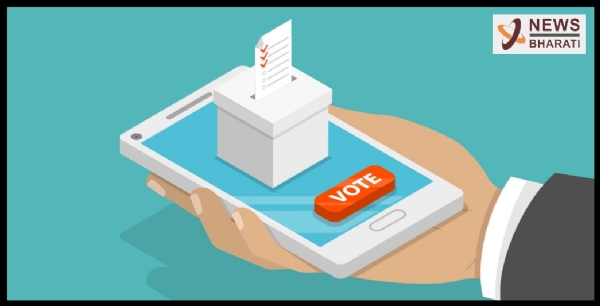Is India ready for Digital Elections?
We are entering the brave new world of a digital-first campaigning with COVID-19 pandemic changing our lives in many different ways, and Indian electoral politics also undergoing a massive shift
Total Views |
An effective political campaign can swing the electoral result and become the difference between forming the government or being in opposition. Traditionally, there has been a heavy reliance on physical campaigning - door to door, physical rallies, small gatherings, and others. Digital marketing and campaigning was an add-on to this huge physical activity.
The COVID-19 pandemic has changed our lives in many different ways, and Indian electoral politics is also undergoing a massive shift. In the next few months, India is going to face assembly elections in five states namely Uttarakhand, Uttar Pradesh, Goa, Manipur and Punjab. The Election Commission has put severe restrictions on physical rallies and gatherings. Rallies, gatherings, and other physical events used to be the most important element of election campaigns for political parties. It served as a medium to engage and motivate karyakartas, the political cadre, and the electorate. And all of that has now changed due to the EC’s mandate. We are entering the brave new world of a digital-first campaigning.

We have all experienced digital marketing. But, digital elections are a different realm. First of all, digital elections require access to a digital device. A candidate who is using Facebook and Instagram to reach his or her followers, is dependent on whether his electorate has at least a smartphone. Second, the electorate should be digitally literate. Third, the voters should be aware about digital elections and how to best access the information related to their candidates. All of these are huge challenges in India, which has a large percentage of population which is not literate, which doesn’t have access to smartphones, and may not even be on platforms like Facebook and Instagram. The Digital India program has made great strides, but it will be a few more years before the entire Indian electorate is ready for digital elections.
However, India is a land of contradictions, and the case of Goa would be worth watching out for. Goa has high literacy rates of 92%+, and almost 75% of the adult population had access to a smartphone and had used the internet by 2019-20 which would only have become higher during 2021. It is clear, amongst the ocean that is India, Goa stands out as a bright spot that is ready for digital elections. The 2022 Goa State Elections would be keenly observed by all political analysts to understand the role of digital elections and to predict what lies in wait for India as a country.
One of the focus issues worth observing would be how the political parties respond to this. The parties entrenched in the State, have a larger number of cadre and karyakartas. In a physical election, these cadre would have been a force to reckon with in the gatherings. However, in a digital election, it all depends on whether these parties are able to upgrade this cadre into being ‘digital warriors’ for their cause. The common ways of reaching out to people including WhatsApp, Facebook, Instagram, and Twitter would need to be imbibed within every karyakarta. This large scale training would ensure that the political party’s cadre is able to contribute effectively to the campaign. If the entrenched parties are not able to upgrade their cadre, then their advantage diminishes. Having a non-digitally equipped karyakarta in a digital campaign, is the equivalent of bringing a knife to a gunfight. In such a case, the new political parties would have an easier time in making an impact.

